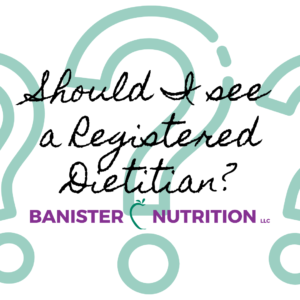Is Food Actually Healthier in Europe?
As dietitians, something we hear frequently from patients is that they often feel sick when eating certain foods at home here in the States, but that when on vacation in Europe, they feel great, no matter how much cheese, pasta, and pizza they eat. This has some patients wondering: Is there really a significant difference between these foods in Europe compared to the U.S.?
Some individuals with gluten intolerance say they have fewer issues eating bread and pasta when traveling in Europe. Some studies suggest one major difference might be the difference in the wheat type used. In many European countries, dough is made from soft wheat which is naturally lower in gluten, while most dough in the United States is made using hard wheat with a higher gluten content. However, hard wheat is still common in many European countries, so the research doesn’t seem to show that this is the deciding factor on its own.
Similar claims about dairy are quite common among those with lactose intolerance who swear that European cheeses never give them as much trouble as their American counterparts. Some suggest that the difference lies in antibiotic use. However, both the U.S. and E.U. have banned the use of antibiotics to promote growth in cattle. The use of antibiotics to treat illnesses in cows is still allowed on both continents. While many E.U. countries have decreased overall antibiotic usage in cows over the years compared to the U.S., this varies considerably from country to country.
While these factors may contribute to some changes in tolerance to gluten and dairy, one of our dietitians was recently in Spain for a week and observed that lifestyle and mealtime habits could be actual deciding factors.
Jennifer found that, for one thing, Europeans eat more slowly than we Americans do. “When you eat more slowly, you’re better able to listen to your internal hunger-fullness signals and stop before you become uncomfortably full. Doing this allows less air into your stomach, which lessens the feeling of bloating after eating.” When vacationing in Europe, American tourists are more likely to mirror the habits of those around them. Taking extra time to savor a delicious meal might be one thing contributing to better digestion when traveling abroad.
Another likely factor is walking after meals. “In car-centric America, going out to eat often means driving to a restaurant, parking, eating, and driving back. In more walkable European cities, especially those with a vibrant cafe culture, it’s much more common to stroll down the street after dining out and taking in the sites on foot.” Studies show that walking before and after meals promotes peristalsis, the natural contracting and expanding of the GI tract that helps food move through the body. Improved peristalsis is key to having good digestion.
But perhaps the biggest and least Euro-centric factor is stress. “The patients who tell me they have better digestion in Europe are almost always there on vacation. Once they settle in, they see a significant drop in the stress levels they maintain at home. As dietitians, one of the biggest causes of gastrointestinal symptoms we see outside acute illness is the stress of our patients’ daily lives.”
While it is true that food processing of gluten and dairy products can vary between the U.S. and Western Europe, it is more likely that improved tolerance and digestion is related to our lifestyle changes while in Europe as opposed to actual nutrient content of food. The good news: This means that that the habits we pick up on vacation can be applied to daily life in the U.S. as well! Take more time for your meals, chew food more thoroughly, incorporate gentle movement before and after meals, and manage your daily stress.

